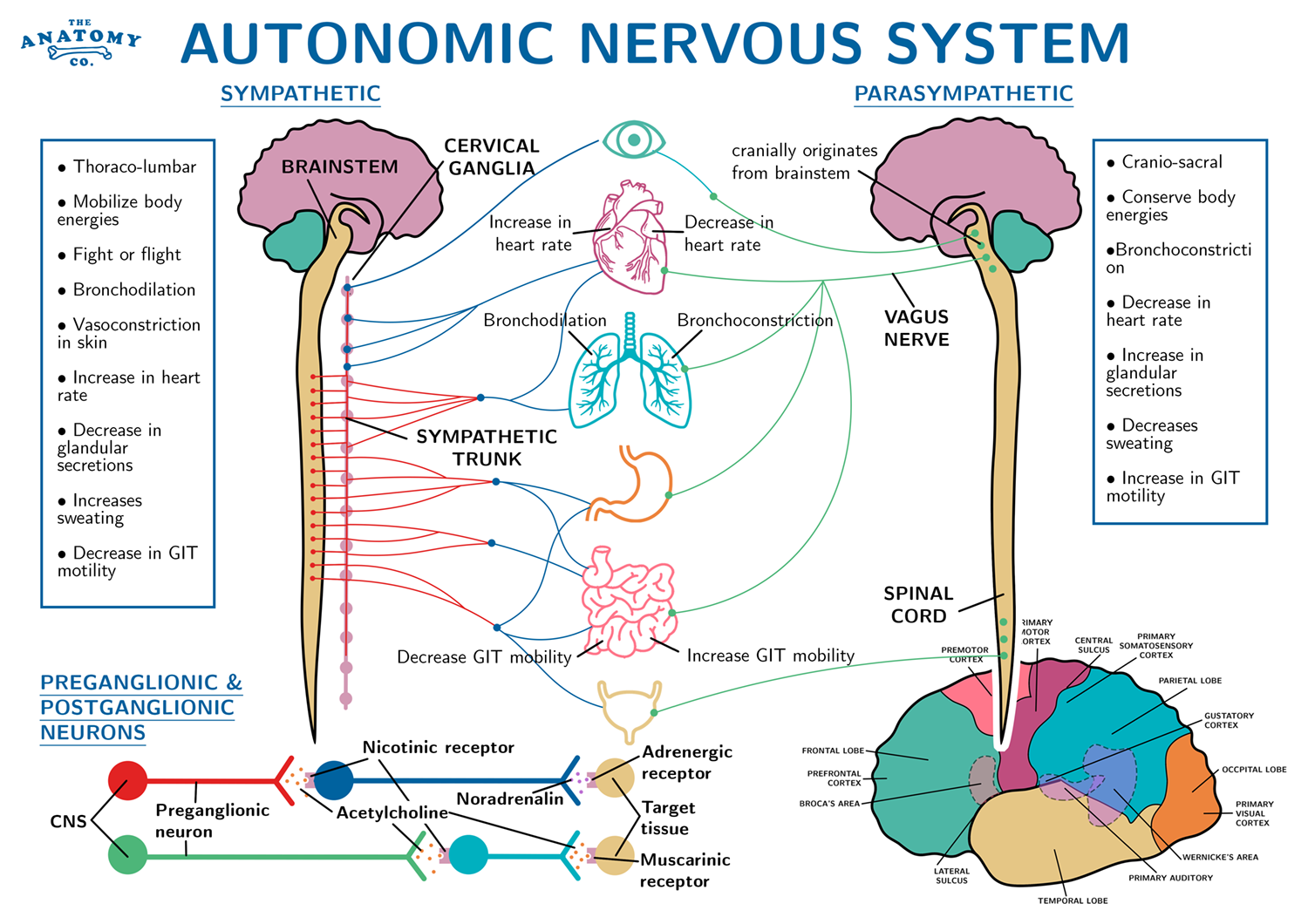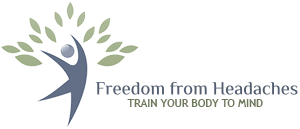Chapter 1 – Stress Happens…
 Do you hear lots of confusing stories about your headaches, what’s causing them, why they don’t respond well to medication and why they are impossible to prevent?
Do you hear lots of confusing stories about your headaches, what’s causing them, why they don’t respond well to medication and why they are impossible to prevent?
Myth: Stress has nothing to do with chronic headaches.
Our story? We are biofeedback therapists and psychotherapists, experts in treating stress related conditions without medicine. We know from experience and positive results with students, stress is one of the major factors in stimulating headaches making them more severe and frequent over time. Read on to find out why.
Your automatic nervous system (ANS) is the first responder to a stressor activating the famous Flight, or Fight, or Freeze response ensuring your survival. In the face of real or perceived danger you either run, stand and fight or freeze.

To meet ups and downs of everyday life, the ANS regulates all the systems you need to stay alive ‘automatically’ but below your level of awareness. The key to preventing headaches is becoming aware of how this stress gets locked in how to reverse its effects.
The stressor can be real danger like fear of bodily harm or an upset about an event like a divorce, death of loved one, getting fired, changing schools, etc. Though the ANS is set off automatically in everyone, how one interprets the threat differs from person to person.
Stress happens…
Your BODY reacts
Your ANS jumps into alert mode
Your MIND has thoughts about what happened
Your EMOTIONAL reaction locks in your response
Here’s what makes the difference. It’s not what happens that is stressful, but how you respond to it emotionally.
Humans have minds that think…a lot. That is good news and bad news. The good news is our big brains come up with solutions to problems and invent new things. However, it also worries, obsesses and predicts negative outcomes. When something upsetting happens and it doesn’t resolve quickly that response is locked in and instead of turning down the volume of the ANS it keeps it in alert mode.
There are two branches to the ANS. The sympathetic nervous system SNS results in cold hands, tight muscles in the head/neck/face/jaw, chest breathing instead of abdominal breathing. Here’s the problem, when you remain under stress for a period of time without a resolution the SNS keeps you geared up for action instead of returning to the parasympathetic nervous system PSNS branch for rest and repair. If all organ systems continue working in emergency mode for even a week, they start to break down.
And, this can initiate a cycle of ongoing headaches, continued stress buildup, more and more headaches, etc.
Conditions that arise from an overactive stress response are called functional illnesses.
Functional illnesses include irritable bowel syndrome (IBS), Reynaud’s syndrome, Temporomandibular Disorders (TMD), anxiety and panic attacks and of course migraine and tension headaches. It is not uncommon if you have severe headaches to also have some of these other conditions. And, which system breaks down has a lot to do with your emotions, physical condition, mental health, environment and vulnerabilities such as genetics, epigenetics or pre-existing injuries.
Even though it’s not hard to see functional illnesses reflect the breakdown in one or more organ systems under the impact of chronic stress, remember chronic headaches are reversible. By now, you know how detrimental and damaging chronic stress can be.
Next in our series, Chapter 2 – How Headaches Become Habits
To learn more about biofeedback and how muscle tension affects headaches download the free guide, Beyond Relief…Prevention.
What is your experience with stress? Do you feel like it affects your headaches? We love to hear from you.

In this article we wanted to begin the conversation about how stress is fundamental to the creation of chronic headaches. Here is what one of our students said after he became headache free:
“I would have been one of those people to say, ‘I am not tense.’ My wife was telling me when this stuff started 12 years ago, she was saying, ‘You’re tense or you’re stressed out.’ I’m like, ‘No, I’m not; I’m fine.’”
“I would convince myself of that because I would say, even when it’s not a stressful situation – on the weekend maybe, I’m not stressed at work. The weekend would come and I’d still have a headache. I thought, I know that’s not it. It must not be stress; it must be something else. I didn’t realize that my mentality had been training my body to stay in a stressful mode, even when it wasn’t a stressful situation.” – Tom H.